|
On Friday night I went to see the latest Gavin O’Connor movie The Way Back with my boys Brett and Brolin. Who is Gavin O’Connor? Good question! He is the director of Miracle (2004), the inspiring true story of the USA men’s hockey team winning the 1980 Olympic gold medal. He also directed Warrior (2011), one of my five favorite movies of all time. Warrior follows the journey of two estranged brothers, both UFC fighters, struggling with their relationship and their alcoholic father. He also directed Ben Affleck in arguably his best role, The Accountant (2016).
I was doubly excited to see The Way Back because it reunites O’Connor with Affleck (Jack Cunningham) in a role tailor made for him: a struggling alcoholic hired to coach his old high school basketball team. Over the past year, Ben Affleck has been vocal about his personal struggles with alcoholism. The movie trailer looked awesome --lots of basketball, pain and triumph. The movie began in a very O’Connor-like fashion: terrific establishing shots of the landscape, personal shots of the protagonist’s day-to-day routine, and a simple musical score to magnify the loneliness and desperation of the main character. The first third of the movie felt a little like Groundhog Day as Jack Cunningham drowns his sorrows in lots and lots of beer. I was a little surprised at the early monotony of the film, as most O’Connor films have a dramatic inciting incident early on that gives direction to the developing storyline. Once Cunningham is hired to coach the dreadful Bishop Hayes Catholic high school basketball team, the energy of the film picks up. I anticipated a strong secondary storyline to emerge with their point guard Brandon. But it never materialized. Instead a montage of quick images shows the team on a winning streak. Later in the film, another secondary narrative emerges as Cunningham meets up with his ex-wife. Spoiler alert. The team miraculously makes the playoffs but Cunningham is mercilessly fired before they begin because of his drinking problem. The movie ends with the team in their first playoff game, while Cunningham is far way, playing pickup basketball. I walked out of the theater disappointed. Why? The movie trailer was more uplifting than the movie (not a good sign), and the secondary storylines didn’t capture my imagination. All in all, I’d give the movie a 6.5/10. Ouch! Sorry Gavin. Great films have this in common: strong stories with secondary storylines that engage us emotionally and help us buy into the overall narrative. Think of Forest Gump, with Jenny’s reckless, drug-filled journey, or Lord of the Rings, with its many rich secondary stories supporting Frodo and Sam’s journey to Mount Doom. As I watched The Way Back with disappointment, I was reminded that people want to become emotionally invested in the characters’ journeys, and that this investment only happens when strong secondary stories bring them deeper into the primary story. The Way Back prompted me to reflect on my most recent film, Because of Grácia, and as I looked back, I was encouraged by the ways that audiences had connected with its multiple storylines: the growing friendship of Grácia and Chase; the complicated relationships between Bobbi, her boyfriend Jesse and her father; the other rich friendships including Grácia’s growing connection with Bobbi; and Chase’s personal journey as he struggles with being a closet Christian. Films, like life, need to be multidimensional. I invite you to check out Because of Grácia and let me know if you agree. director Tom
0 Comments
 The 92nd Academy Awards will be presented tonight at the Dolby Theater in Hollywood. For a number of years I held an Oscar Party where my guests and I guessed who would win the coveted awards. The person who guessed the most winners had their name engraved on a beautiful plaque. I couldn’t wait for the Academy Awards and our Oscar night festivities. That all changed about five years ago and sadly I haven’t seen them since. This seems odd for a film fanatic like myself but I’m not alone. The Academy Award ratings have plummeted over that same period as more and more people are tuning out Hollywood’s biggest night. The 2018 Oscars had the worst television ratings ever and last year was the second worst. I can’t tell you why others have stopped watching the Oscars but I’ll let you know why I no longer watch a program that went on my calendar months in advance, year after year. There are two specific reasons the show has lost its luster for me personally; the first is the acceptance speeches from tone-deaf celebrities. Whether it’s preaching about climate change while flying around the globe in private jets or telling me what to think about politicians or hot button topics like abortion. I’m not interested in knowing what artists think about politics or global issues while accepting an award. Ricky Gervais said it best at the Golden Globes, thank your agent and your God and get off the stage. The second reason I’ve lost interest, is that many of the films nominated for Best Picture and actors/actresses nominated for Best Actor/Actress over the last decade are not my cup of tea. The Academy members simply like films and performances that I’m not into to. I thought the best acting performance this year was from Paul Walter Hauser playing Richard Jewell but he wasn’t nominated for Best Actor. I honestly would have watched the Oscars just to see if he won but it wasn’t meant to be. Who knows, maybe the Academy Awards will change their ways and draw me back to this once coveted show. I’ll never say never, but this year I’ll be checking the winners on Monday, like I have the last four years. director Tom
Over the last month I was fortunate to see two British films at one of our local movie theaters; Yesterday, a Danny Boyle film and Blinded By the Light, directed by Gurinder Chadha. Boyle has directed some terrific films including Slumdog Millionaire (2008), Trainspotting (1996) and 127 Hours (2010). Chadha directed Bend it Like Beckham (2002), a delightful film about women’s soccer in the UK starring an unknown actress Kieira Knightly who went on to star in Pirates of the Caribbean (2003). Boyle is known for his unique visual style including the use of dutch tilt shots and Chadha likes to explore the lives of Indians living in England.
I was pleasantly surprised by Yesterday and Blinded by the Light for different reasons. Yesterday begins with a struggling musician (Jack Malik) and his long-suffering manger (Ellie Appleton) that believes in him in spite of multiple set backs and his inability to make it big. One night he tells Ellie he’s had it and is quitting the music scene and gets on his bicycle to ride home when the power goes out across the globe for thirteen seconds. When the power is restored Malik is hit by a bus (and survives). The power outage has caused an inexplicable change in history including the Beatles never existing. When Jack gets out of the hospital he discovers that he’s the only one who knows about the Beatles and he decides to cut an album using classic Beatles songs. Jack is discovered by Ed Sheeran, a famous musical artist from Britain and he becomes increasingly unhappy knowing he’s a fake who has stolen the songs of the most famous musical group to have ever existed. The story is predictable except for a scene between Jack and Ellie in a hotel room. After a night of heavy drinking they make out. This leads to the moment where they are going to sleep together. In that moment of passion Ellie says no to Jack because she doesn’t want to be a one-night stand for him. This moment of virtue eventually leads to the third act where they get married and have two kids, living happily ever after. Sounds a lot like courtship to me! In Blinded by the Light the main character Javed is an awkward Pakistani sixteen-year-old living in Britain in the late 1980’s. His family life is tense as he navigates the traditions of Pakistani life and living with teen angst while trying to figure out his place in the world through his poetry. A delightful Pakistani friend introduces him to Bruce Springsteen’s music and this begins a journey of self-discovery as he finds his voice and his place in the world. Again, I found the movie fairly predictable as he rebels against his parents, especially his domineering father who thinks his artistic endeavors are trite and impractical. He has rebellious classmates and supportive teachers who remind him to follow his dreams no matter what others think. This sets up a surprisingly emotional ending that reinforces the importance of our roots and never forgetting where we’ve come from and to honor our parents. The proverbial wisdom in this moment caught me off guard as I was waiting for Javed to tell his father off and walk into the sunset reminding the audience that life is all about me. The ending could have come off as sentimental and preachy but Javed was such an endearing character that it came across as sincere and inspiring. Blinded by the Light has an 88% positive rating from Rotten Tomatoes with no sex, no foul language and very little violence. Reviewers loved the story, the performances and were moved by the ending. This is a powerful reminder to me to stay true to my stories and to tell them honestly and not apologize for the Biblical life lessons. If you’re an up and coming storyteller I’d encourage you to see these films as well as Because of Grácia. All three films will hopefully inspire you to tell truthful stories, with memorable characters and storylines that make you want to do the right thing. director tom  Recently I re-watched the 1992 movie “A Few Good Men”. The movie stars a youthful Tom Cruise, Demi Moore and the always-iconic Jack Nicholson. Its story revolves around a court case involving two marines from Guantanamo Bay who are accused of murdering a fellow marine. Jack Nicholson is their superior officer and Tom Cruise is their defense lawyer. “A Few Good Men” is an absolutely riveting film with great performances, sharp dialogue, beautiful costuming, handsome set design, exquisite lighting, warm and luminous color, and rising action throughout. The film is a classic. Based on three criteria: story, performance and technical elements, I rate this film as 9 out of 10. The movie has an 82% fresh rating on Rotten Tomatoes and a 7.7 out of 10 rating on IMDB. These are very good ratings for any film. In fact, they are almost identical to the audience ratings “Because of Grácia” got on IMDB and Rotten Tomatoes. Why am I telling you about “A Few Good Men”? Good question, pardon the pun. I hadn’t seen the film since becoming a filmmaker in 2005, and had not paid close attention to its compelling storyline, exceptional performances, and technical excellence. Seeing it again excited me about making quality films, films that will stand the test of time. This time around, I was struck by the character played by Kiefer Sutherland. As the son of Donald Sutherland and Shirley Douglas and the grandson of Tommy Douglas, the former premier of Saskatchewan, Kiefer has a strong connection to Saskatchewan. I’ve enjoyed Kiefer’s performances dating back to “Stand By Me” (1986) and “The Lost Boys” (1987). He plays antagonistic characters with passion, honesty and integrity. In “A Few Good Men”, Sutherland portrays 2nd Lieutenant Jonathon Kendrick, a marine on a mission. He’s super serious about three things; God, country and being a marine. Listening to his accent, it’s clear that he is from the south. He is quick to remind people that he is a follower of Jesus Christ. He is also one-dimensional with no character arc from beginning to end -- wooden, judgmental and humorless. He holds Tom Cruise’s character, a fast-talking lawyer from Washington DC, in utter contempt. Reflecting on Kiefer Sutherland’s character, I asked myself: Would the critics have given “A Few Good Men” such glowing reviews if Tom Cruise’s character, a self-centered, secular humanist, had been one dimensional with no character arc? Would they have praised the film if Kiefer Sutherland’s Christian character was complex, funny and the hero of the film? My guess is … probably not. And why is that? Personally, I don’t believe that most film critics or filmmakers understand Christian characters. They don’t relate to their life experience. That’s where I hope that a new generation of filmmakers can make a difference -- portraying all characters, Christian and non-Christian alike, sympathetically, with a level of complexity that audiences can relate to. As the writer and director of “Because of Grácia”, I have tried to do just that. The main character, Grácia Davis, a committed Christian, is smart, compassionate, fun loving -- and flawed. She has a past that she’s ashamed of. Her combative and agnostic debate teacher, John Livingston, is intelligent, hardworking and has a strong moral compass. Towards the end of the film, he makes a heroic choice. Re-watching “A Few Good Men” got me super excited about the art of filmmaking. It reignited my desire to create films that make a difference, films that explore the human experience in a God-centered context, films that inspire and challenge people of all ages. I know that “Because of Grácia” is doing so. As I hear reports of how it is touching people from all over the globe, I am reminded of the power of film as a storytelling tool that changes lives. director tom Cheryl and Dale at the Because of Grácia premiere in Franklin, Tennessee In the beginning, to be honest, we hadn’t really expected to be so drawn to the film as we were. I know it’s probably surprising to read that, especially when the writer/director is such a good friend of ours. But usually we don’t really go to see Christian or faith-based films, so when our friend Tom Simes asked us to take a look at the rough cut for Because of Grácia (BOG), we did it because he asked us and because we appreciated the play BOG was based on he’d written and produced with so much talent many years before.
My husband Dale and I watched the rough cut with his parents (my in-laws), who are both in their 80’s. We thought it would be a great idea to get their feedback on it as well as a nice way to spend an evening with them. The rough cut by the way, was basically a bunch of friends and students of Tom’s who agreed to act out the screen version of the play and film it at Tom’s school. So there were no professional actors, no expensive equipment, and no big names. But by the end of the evening, all of us were crying. One of the things that caught our attention the most I think, was the fact that even though the stories were written about teenagers and their experiences in high school, there was something for every age in the film. Each teenager was not just a stand-alone character interacting with their peers, but was given a full role as parts of families and relationships within that family. Parents doing their best to show love and present stable role models, a pastor father losing the balance between ministry and family, humour and family traditions, teenagers interacting with both the good and not so good aspects of their family foibles – it was all there. These were not just 2 dimensional characters trotting out the familiar lines and quotes included in many a faith based film. These strongly written teens saw, felt and interacted with the good, bad and the ugly about everyday, real life. Also, although the original theme was about the real and present struggle of how teens can live out their faith at school, there were so many other core issues that came out of this very realistic storyline. These were struggles most kids have, finding their way in teenage dating relationships, dealing with bullying, struggling with discerning the difference between freedoms and healthy guidelines in their lives - these are just some of the side stories and themes that present themselves in this excellent film. We decided to support Because of Grácia and become part of the investors’ team because we believe in this film on so many levels. It touches everyone who sees it, whether they are a Christian or not, and also encourages many to start seeing what all the fuss is about regarding a relationship with God. We connect with it in our 50’s and our parents in their 80’s because as parents and grandparents we have experienced some of these situations ourselves, or have seen our kids or grandkids encounter many of the challenges presented in this movie. Although the original purpose of the film was to connect with teens, it connects on a deep level to a multi-generational viewing audience. Any film that does this so well with such integrity and includes the stellar acting and directing that this one does deserves to be seen by all. Cheryl N. Pastors are human. Pastors are parents. Pastors need our prayers and support.
Here’s a cautionary tale from one pastor about how Because Of Grácia impacted his relationship with his teenage daughter. Thank you Pastor James for your honesty! “Recently one of my daughters has become interested in a particular boy from her youth group. We have this rule of no dating until 16 and she is 15 so not there yet. As a dad it’s hard for me because I’m not used to sharing the affections of my daughter with another guy. And the fact that my daughter has made some not so wise choices that are a poor reflection of her godly character. This breaks my heart as a father and makes me feel like a failure as a pastor. I related personally to Pastor Ryan in the movie in regard to his relationship with his daughter Bobbi. Pastors can have a difficult time not allowing the pressures of ministry to filter into their home. Sometimes those pressures end up affecting the relationship of those who are nearest and dearest to us. Dealing with a cocktail of emotions… anger, disappointment, failure, depression, feeling extremely vulnerable and exposed. These feelings unfortunately carried into our conversations with my daughter that turned into screaming matches. These often ended in me saying things I don’t really mean in my heart and resulted in slamming doors. It’s easier to look from the outside in to see where things have come off the rails - like watching it unfold in the movie. However when you’re in the middle of it, in your own home, it’s very different to stop, step back and evaluate. I want my daughter to know that I love her more than I love the church. I want her to know my love for her is not conditional. I want my daughter to rely on God’s Holy Spirit for matters of the heart. I want my daughter to know I trust her and to trust me that I’ve set parameters to protect her. I recognize that my daughter and I are long overdue for a daddy/daughter date. This movie is so real to life, it was my wake up call."  Like the character Bobbi Ryan, Kori found herself facing a crisis pregnancy. Sadly, many young girls and women face this situation and need to make huge and life altering decisions. I love Because Of Grácia! This film moves me every time I watch it. The Bobbi and Jesse story is so much of what I lived through in my own life during a crisis pregnancy. This movie forthrightly addresses and portrays the very real fears and devastation that accompany a crisis pregnancy. And the authenticity and love that Grácia offers Bobbi in her anguish satisfies my longing for goodness, wholeness, and healing in a very painful and challenging situation. To see Bobby rise above her circumstances thrills my soul and is a picture of God taking the ashes of a life and turning them into vast beauty. Also, knowing that Grácia has a hard event in her own history that she has been able to overcome, and how she chooses to live a powerfully intentional life in Jesus inspires. Her liberty is pronounced, abundant, refreshing, and awesome. Jesus is the great Redeemer of our lives no matter what we have been through. There is nothing He can not set right. “Whom the Son sets free is free indeed.” Own your life. Be brave. And “speak the truth even if your voice shakes.” Live life abundant. Kori is the wife of Jamie and a homeschooling momma to two heroes-in-training. Once a dancer at Disneyland, she is now dancing upon injustice and working for truth in whatever sphere of influence the Lord puts her in. Area Director for Concerned Women Of America of East Texas, Kori is diving into work she never imagined she’d be such an active part of: public policy. She has a deep love for God’s word, life and righteousness and loves to serve her family. Kori has a passion for America and its providential history. 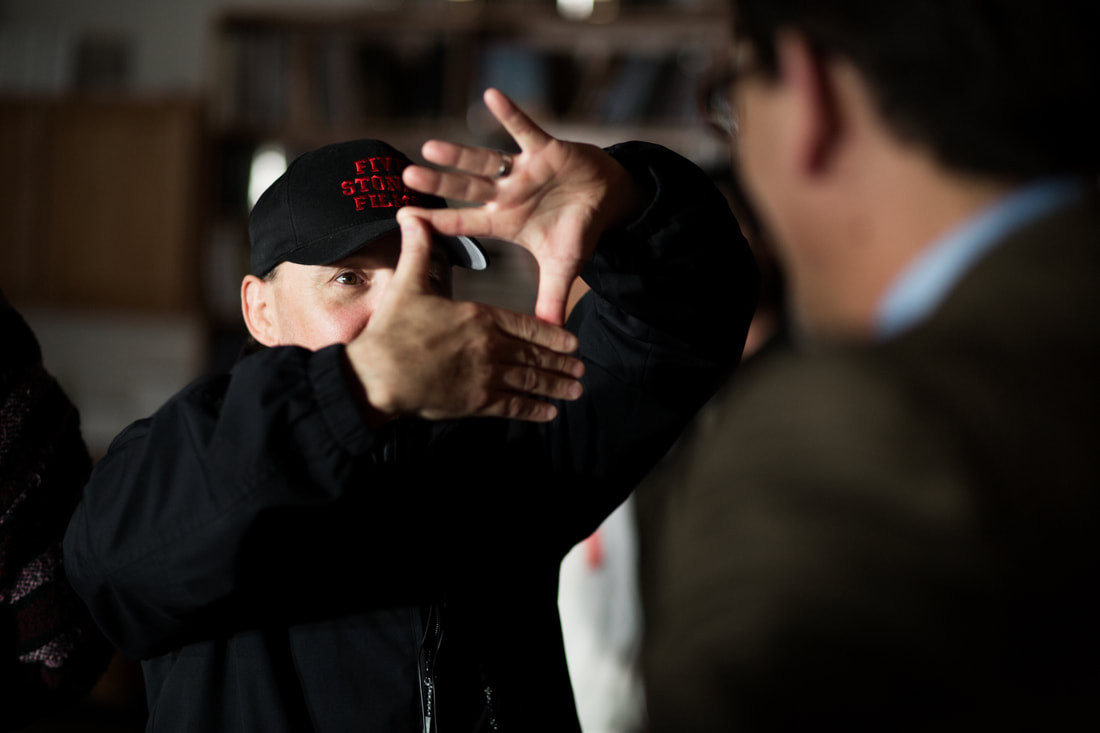 Over the Christmas break, I surprised my youngest son Brolin by taking him to see the classic movie “It’s A Wonderful Life” on the big screen. The movie is about a man named George Bailey who plans to take his life so he can leave his family a life-insurance payout. The movie resonates because of its strong themes of family and faith, and the impact that just one man can have on his whole community. As we left the theater, I was taken with how well the film played on the big screen. My son loved it and wanted to talk as we drove home. Watching on the big screen, I saw something I’d never seen before. At one point, George is granted a glimpse of what his home town would be like if he had never been born. The town was no longer called Bedford Falls but Potterville, named after the ruthless businessman who gained control of most of the town. In the past, I had thought the film’s main message was George Bailey’s passion to fight the evils of capitalism, as he worked to provide the ordinary working person the dignity of owning their own home. While driving home, another theme occurred to me. Without George’s selfless passion and hard work, the entire community would have been consumed by a Darwinian attitude of survival of the fittest, creating a place where people no longer took care of each other or even knew each other, a place of faceless strangers, desperate and violent. This film reminded me why so many of our cities have become impoverished, not only financially, but also morally and spiritually. When we stop caring for one another, when we no longer see each other as valuable, the value we place on our own lives also diminishes. The tragic outcome for North America is that, sadly, suicide has become the second leading cause of death among teens. As we pulled into our garage, Brolin took the message a step further. He noted how George Bailey and his wife Mary had practiced courtship and chastity and cherished their four kids. Although a life crisis had brought George Bailey to a desperate place, a place where he considered suicide, and although family pressures could have caused Mary to consider the need for an abortion, abortion and suicide never became real options. Their reverence for life and the strong support of their community carried them through, even when things got tough. I’m so glad we saw “It’s A Wonderful Life” on the big screen. It’s no wonder that this life parable continues to touch lives 70 years after its first release. As Writer and Director of “Because of Grácia”, I can only imagine the joy of seeing families embrace its themes 70 years from now, being inspired to live out their faith in a world that desperately needs people like George and Mary Bailey, like Grácia and Chase. director tom This first time I watched 'Because Of Grácia' was opening weekend back in September 2017. I had found out about the film because I follow actor Chris Massoglia on social media and he had been promoting it for several months leading up to the film's release. I started reading up on the film and it immediately sparked my interest. I was particularly drawn to the topics that they were going to cover because they were not topics typically handled in film, at least not to the same caliber. As soon as tickets for the film became available, I pre-ordered one for my birthday, which was the same time as the film's opening weekend. I did not have anyone to go with, but I was more than happy to go to the film anyway. In fact, sometimes I prefer seeing films for the first time by myself. I did not have anything planned for my actual birthday, so, I celebrated my birthday by going to see 'Because Of Grácia'! When I arrived at the theater, I was approached by a member from the Lehigh Valley Students For Life who was there promoting the film. That was when I realized that 'Because Of Gracia' was more than just a film, it was an opportunity for people to speak up about an important topic, pro-life vs. pro-choice.
I was truly amazed and impressed with every aspect of the film -- cinematography, casting, character development, plot, etc. -- it was all incredibly well done. (My full review of the film can be found on the 'Because Of Grácia' Facebook page). However, perhaps the best part of the film for me was the fact that it caused me to think, specifically it caused me to think about my stance on the issue of pro-life vs. pro-choice. Before seeing the film, I was not sure where I stood. Part of me never agreed with the idea of abortion, however, everywhere I turned I saw people promoting it. I was surrounded by friends and family who were openly pro-choice and, because I have never been one to really speak up, I never challenged them. So when I saw a film that actually promoted life, it was refreshing. Seeing the characters stand up for what they believed in, even through times of hardship, was encouraging. Watching Grácia Davis, the new girl at school, stand up to her peers and teachers to speak up about her beliefs was eye-opening and empowering. Watching Chase Morgan recite a monologue in front of his class about his personal journey with Jesus was moving and inspiring. And watching Bobbi Ryan make a last-minute, life-altering decision right outside of the abortion clinic not to follow through with an abortion was emotional and powerful. These characters began to give me courage, courage to not be ashamed of my beliefs and to share them with others. It has now been over a year since the first time I watched 'Because Of Grácia', and admittedly I am still struggling to find my voice at times. However, it is easier for me to speak up now than it ever was before. And I owe that to this film. So, in conclusion, had it not been for 'Because Of Grácia', I never would have realized how much I believe in being pro-life. I never would have had the courage to challenge the beliefs of those around me and be confident in doing so. This film changed my life, which is something I will be forever grateful for. - Ashley 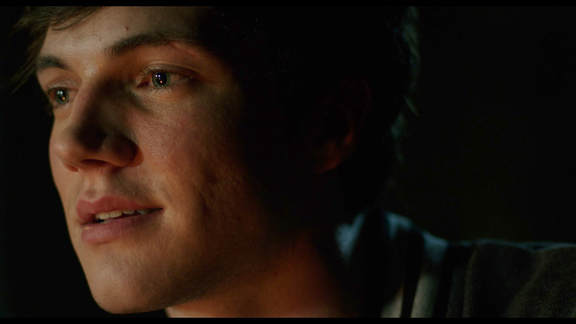 Since I started acting at the age of 10, no project has changed my life the way Because of Grácia has. God really used Because of Gracia to make a shift in my life! I’ll always be so grateful to Him for opening the door for me to play Chase in Because Of Gracia. God Revealed His Heart To Me For The Pre-Born When I first read the script, the main hook that pulled me in was the relationship dynamics between my character Chase, and the lead in our film - Gracia. I was reading it through the lens of my character’s eyes, and thus some of the other themes of the film didn’t necessarily jump out at me right away. When I watched the movie for the first time, one of the most impactful scenes to me was a scene outside of an abortion clinic. Every since that first time seeing the film, the theme of the sanctity of life really came alive to me in a special way. Yes, this was after we had gotten done filming! It’s safe to say Because of Grácia impacted me heavily as an audience member in addition to impacting me as an actor! As part of the promotion for Because of Grácia we went to the annual March For Life in Washington D.C. God really used the young people there and the speakers to touch my heart. I wanted to be a voice for the voiceless and speak out for these innocent lives that are being lost by the millions! Since being apart of this film, the sanctity of life has become one of these issues that I pray for, fight for, and will always speak up for. Introduced To The Christian Film Circle Because of Grácia was my first “Christian” film - a film that expressly promotes faith in Jesus Christ. As a Christian myself, it was an amazing experience to act in a faith film. My character Chase Morgan is a young man struggling with his own faith walk. At a certain point Chase recites a spoken word poem about Jesus and as an actor this is was one of my most memorable moments! It was such an amazing experience to “act” as a character speaking of the attributes of a savior that I so deeply love and have a connection too. It was a powerful moment for me and one of the only times I’ve felt close to God while the cameras were rolling. This moment and many other moments like it opened my eyes to how great it is to do faith films! Because of Grácia opened doors for me to connect with other believers making movies, and the connections I’ve made I’m super grateful for. While I’m not putting off other non-faith films (My latest film The Lumber Baron isn’t a “faith” film), I would love to be in additional faith films! Lessons Of God Works All For The Good & All Things Are Possible! While I would love to be in more faith films, like most industries even the “faith” film industry isn’t perfect. Through many challenges of working alongside so-called “Christians” God has taught me a lot of lessons. Forgiveness, trust, that all things are possible, and the biggest one -- He will work all things out for the good of those who love Him and are called according to His purpose. No matter how large or small the financial success of Because of Grácia ultimately is, I know this film has been a huge success in God’s eyes. Even now close to a year after the film’s release, stories are still pouring in regarding how Because of Grácia’s message have touched many lives. God works all things for the good! Even how this film started is amazing to me. Writer and director Tom Simes had a dream as a high school teacher to make a film & it actually happened! God can make anything happen. This has been a huge inspiration to me. It’s given me faith and courage to continue to tell stories through this amazing medium we call movies. Chris Massoglia plays “Chase” in Because of Grácia. To learn more about Chris and see his recent projects check out: www.chrismassoglia.com or follow him on Instagram at www.instagram.com/chrismassoglia |
(c) 2022 SERV OTHERS, LLC. All Rights Reserved.


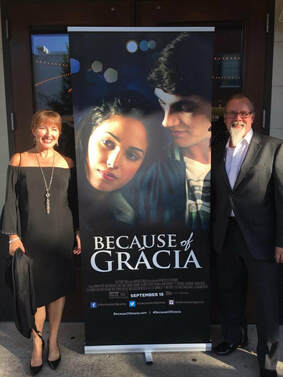
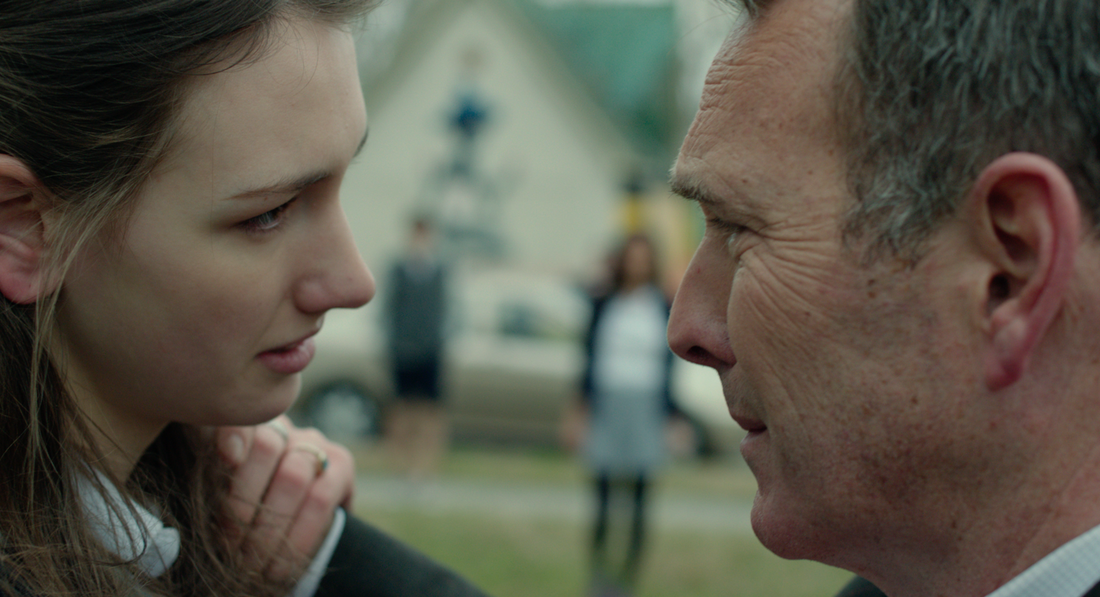
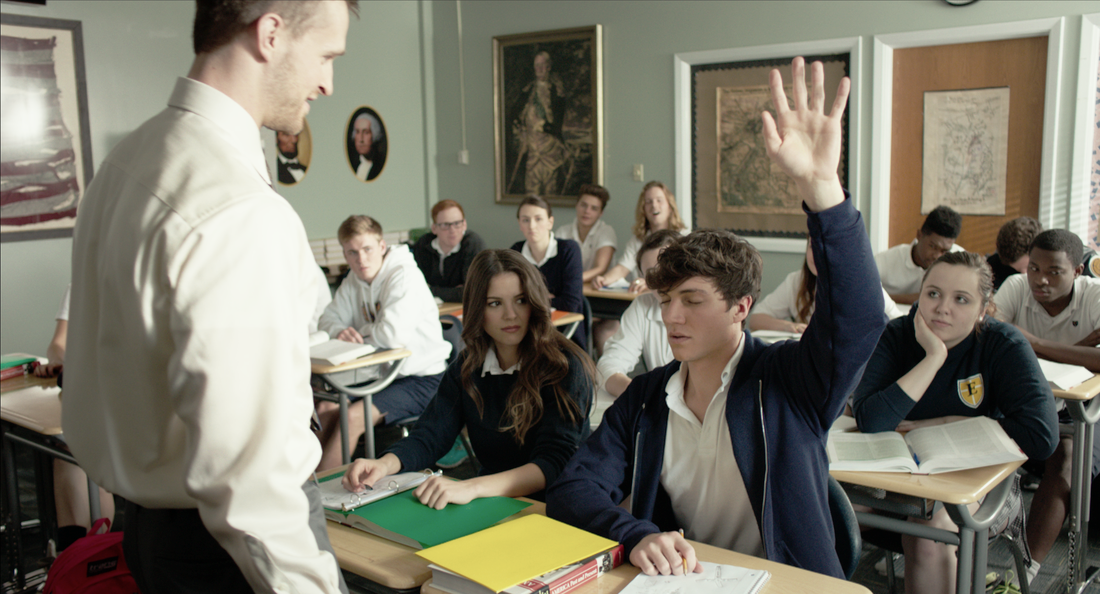
 RSS Feed
RSS Feed